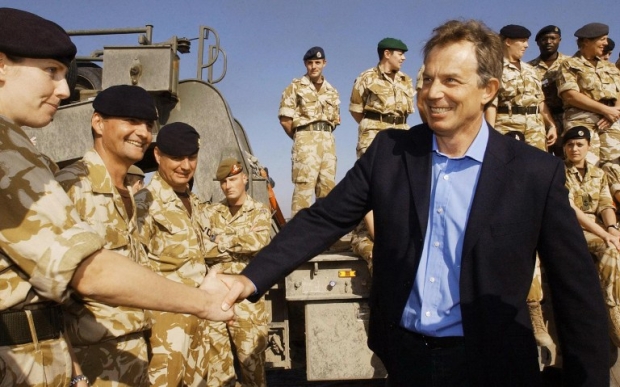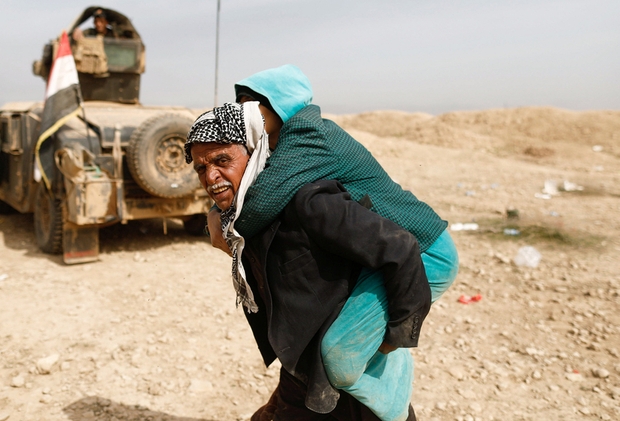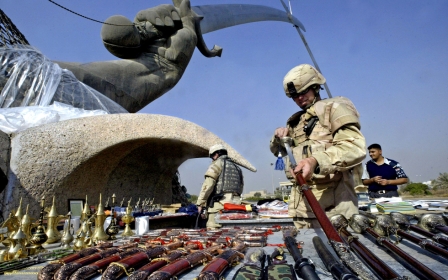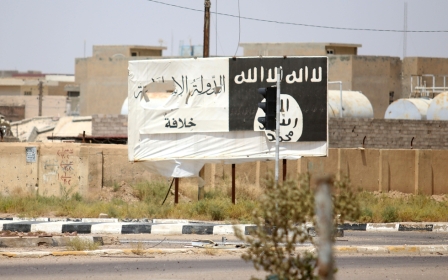Monumental deceit: This Iraq war statue is a whitewash

The area around Whitehall and Westminster in Central London is full of statues and memorials to - sometimes forgotten - wars and the generals who fought them. It is unusual however to have a memorial to wars which are continuing and which are highly contested.
The omission of many families of the dead from the ceremony on Thursday was probably, at least in part, because of fear of opposition from that quarter
Yet the latest war memorial in London – to commemorate the Iraq and Afghanistan wars – is exactly that. Perhaps unsurprisingly, it has been unveiled against a background of rows and controversy. The unveiling of the new memorial took place at a ceremony where, astonishingly, many of the relatives of those who died were not invited – some did not even know it was going on.
The project was launched by a financial appeal through Rupert Murdoch’s Sun on Sunday, and among those contributing to the cost were the arms company BAE Systems.
The sculptor has designed a memorial which links military and civilian contributions, and which has one of its sides as a jagged edge, supposedly to convey "the harsh, dry, rocky and difficult terrains of the two countries but also to suggest how the outcomes of both campaigns is not fully resolved, that there was much division within the British people over them".
That may be a valid artistic approach to the sculpture, but it is also a massive understatement about the politics, to say the very least.
Illegal and unpopular
Iraq was the most contested war in British history, and has been shown by subsequent events to have been an utter failure. The Chilcot report last summer made clear that this was an unnecessary and illegal war which Tony Blair was determined to wage regardless of the facts or public opinion.
This continuing opposition to war is not reflected or even acknowledged in any of the official approaches. The omission of many families of the dead from the ceremony on Thursday was probably, at least in part, because of fear of opposition from that quarter.
It beggars belief that, despite the trashing of his reputation by Chilcot last summer, the architect of the Iraq war, Tony Blair, was one of the VIPs who made it onto the guest list. To add insult to injury, the memorial itself contains a Blair lookalike as one of the soldiers represented.
All of the victims of war
Whether Blair will appreciate the likeness, and whether this was by accident or design on the part of the sculptor, the narrative accompanying it reinforces Blair’s view of the war as one big humanitarian intervention.
To Rupert Murdoch's Sun and the British government and military, this is about commemorating war
Tory Defence Minister Michael Fallon described it like this:
"The memorial will stand as a permanent reminder of the contribution and sacrifice that so many members of our Armed Forces, aid workers and civilian personnel made towards the security of the United Kingdom and the interests of Iraq and Afghanistan. Their efforts underline our on-going commitment to support the people of this region in building a more stable future which will help keep Britain safer and more secure."
All deaths in war should be remembered, and our thoughts go out to all the victims of war. But while the number of British military and civilian personnel killed in these wars are marked in their hundreds, those of Iraqis and Afghans are marked in their hundreds of thousands and tens of thousands.
Not a time of peace
And we should always remember that these wars are still going on. There are still British military operations in Iraq, in particular the bombing of the northern city of Mosul, at huge risk to civilians. Western troops remain operational in Afghanistan.
And while it is only right to honour those non-military personnel who put themselves in danger in such circumstances, it is also right to point out that the amount spent on aid and reconstruction is a tiny fraction of the amount spent on military invasions and occupations in these centuries.
There is no peace in the Middle East and South Asia. Nor is it anywhere close. The threat of terrorism in the West has grown in the past decade-and-a-half since the wars began.
We should never forget those who have died in these wars. But we should never forget the hypocrisy and deceit of those like Blair who took us into these wars and who continue to justify them. And we should not allow their history to be rewritten about humanitarian intervention, when they were nothing of the sort.
- Lindsey German is convenor of the Stop the War Coalition and co-author of A People's History of London
The views expressed in this article belong to the author and do not necessarily reflect the editorial policy of Middle East Eye.
Photo: Britain's Queen Elizabeth II and Britain's Prince Philip, Duke of Edinburgh, attend the unveiling of The Iraq and Afghanistan memorial at Victoria Embankment Gardens in central London on 9 March 2017 (AFP)
Stay informed with MEE's newsletters
Sign up to get the latest alerts, insights and analysis, starting with Turkey Unpacked
Middle East Eye delivers independent and unrivalled coverage and analysis of the Middle East, North Africa and beyond. To learn more about republishing this content and the associated fees, please fill out this form. More about MEE can be found here.








